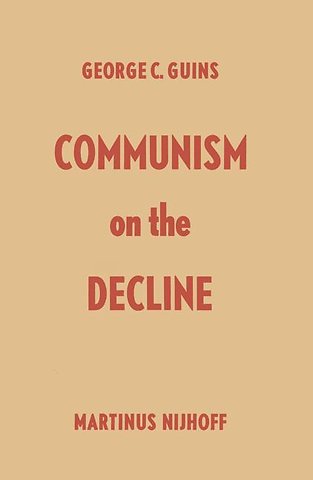Communism on the Decline
The Failure of “Soviet Socialism” Incurable Evils Discredited System Symptoms of Demoralization The new Generation Formation of new Psychology Some Rays of Light Cold War with the West Inner Conflicts Soviet Crisis—a Challenge to the Western World
Paperback Engels 1956 9789401500333Samenvatting
Communist dictatorship rests not only on a police regime supported by terror. As this writer tried to explain in his previous work, Soviet Law and Soviet Society, the Communist regime is founded to a large degree on the economic dependence of all citizens on the State, as an universal monopolist and a single employer. It is impossible to support such a regime by means of coercion only. Communism tries therefore to impress people with its achievements and to suggest great expectations. It declares itself infallible and invincible. The decay of Communism starts when its achievements cease to satisfy people, when its promises do not raise enthusiasm, and its infallibility becomes exposed; when people begin to understand that the Communist philosophy is based on illusions and its regime is vicious and despotic. When this occurs then coercion proves to be more and more inefficient, and it becomes more and more difficult to secure the people's support. The government begins to feel that the roles are changed and that it is the govern ment which depends on the people rather than the people on the government.
Specificaties
Lezersrecensies
Inhoudsopgave
Anderen die dit kochten, kochten ook
Rubrieken
- advisering
- algemeen management
- coaching en trainen
- communicatie en media
- economie
- financieel management
- inkoop en logistiek
- internet en social media
- it-management / ict
- juridisch
- leiderschap
- marketing
- mens en maatschappij
- non-profit
- ondernemen
- organisatiekunde
- personal finance
- personeelsmanagement
- persoonlijke effectiviteit
- projectmanagement
- psychologie
- reclame en verkoop
- strategisch management
- verandermanagement
- werk en loopbaan






